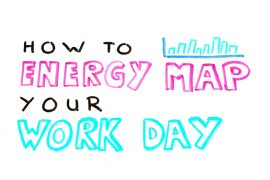Why do some people get burned out while others don’t? Can you avoid developing burnout symptoms by getting enough sleep? For the answers on these and other questions, read on!
Burnout Is Just About Stress, Right?
Well, no. As discussed in How To Recognize Burnout: 5 Early Warning Signs the burnout syndrome comes in different forms. Burnout isn’t just about being overworked but can also result from being under-challenged. ‘Burnout syndrome’ is the emotional and physical exhaustion resulting from long-term exposure to environmental and internal stressors and inadequate coping skills. Even though exhaustion is a major symptom of the burnout syndrome, it does not mean that it can be prevented by getting enough rest. Burnout is caused by not being able to cope with external stressors resulting in job induced depression like symptoms. Experiencing feelings of frustration and overwhelm at work on a daily and long-term basis can lead to loss of motivation and feeling pessimistic towards your work.
We know that the personality trait GRIT promotes resilience and perseverance. Having a pessimistic attitude can be considered the opposite of grit, and negatively influences behaviors like resilience and perseverance.
What can you do when you feel you might be at risk for getting burned out?
Find Your Purpose
So what’s the number 1 thing you can do to increase grit and beat pessimism? It’s finding your purpose.
The difference between having a job, a career or a ‘calling in life’ is purpose. People who have found ‘meaningful work’ show the most grit in life.
As described in How To Increase Grit: The Most Important Personality Trait To Predict Success meaningful work can be defined as ‘work of expert quality that benefits the broader society’. Finding meaning in what you do has a lot to do with meaning something to OTHERS. Study shows that just thinking about how your work is benefitting the people around you already changes how you perceive your role. By becoming aware of even the smallest ways in which you contribute to society already increases the purpose you experience in your work.
Having a lot of grit stimulates resilience. Having meaningful work stimulates positive thinking. These behaviors together create an excellent coping mechanism for managing external stressors.
Social Support = Mental Support
What do you do when you are extremely busy at work? Do you forget to eat? Do you cancel your gym class? Do you postpone having fun with your friends?
One of the first things people do to create more time during jam-packed workweeks is canceling fun, private activities that not directly benefit your work, right? Wrong! In times of stress we NEED to focus on our physical and mental health even more than during other times. This old Zen saying about meditation could also be translated to taking take of yourself: “You should sit in meditation for 20 minutes a day. Unless you’re too busy, then you should sit for an hour.” Social support and physical activities helps us to alleviate stress and should be done MORE instead of LESS during stressful times.
Train Your Brain To See The Bright Side Of Life
Another way to increase resilience and strengthen your stress-coping mechanism is by train your brain for positive thinking. Pessimists tend to think that bad situations are permanent (“This will never change!”), happen to them personally (“This ALWAYS happens to me.”) and generalize incidents (“I’m sure this will happen again.”). Optimists, on the other hand, more often believe bad situations are just an incident, not their fault and temporary. Who do you think are more stress resistant?
The good news is that you can actually train your mind for positive thinking. Check out this video explanation on how to train your brain for happiness and success.






